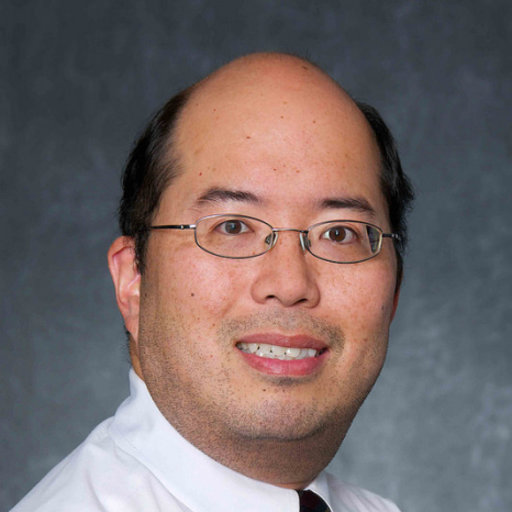Last Updated on August 25, 2022 by Laura Turner
Undergraduate and post-baccalaureate educational institutions want their students to succeed, so they invest in advising offices for their pre-health students. These pre-health advising offices can consist of one tenured or retired faculty member or a larger team of trained academic advisors. There is no specific certification for pre-health advisors, so advisors can come from many different backgrounds. But they all have a common goal: to help all their advisees become better prepared for the application process and a career in the health professions.
The most successful students usually assemble a team of advisors representing different areas of expertise (science knowledge, essay writing, interviewing, career assessment, personal reflection). They effectively leverage their advisors’ abilities to be fully prepared for the application process and subsequent graduate education. For many whose access to advisors and mentors may be more limited, here is some advice to help you make the most of your time with advisors.
Make your meetings count
The most common complaint heard in the Student Doctor Network Forums is the inability of advisees to schedule appointments and meet with their advisors. Many applicants feel intimidated and do not access campus resources, particularly first-generation, gender non-conforming, non-traditional, underrepresented, or socioeconomically disadvantaged students. Consequently, these groups are more at risk of academic difficulties that could unintentionally extend their undergraduate education or derail their dreams.
Advisors can be challenging to access because of what the advisors’ job descriptions allow them to do. Advisors are not customer service representatives available 24 hours a day, seven days a week. Some offices only work with those who are almost ready to apply and want help compiling letters of evaluation or an institutional committee process. Some offices are more flexible, offering evening/weekend appointments, text-based communication, or “walk-in” hours where no appointments are needed. While the number of advisees an office is expected to work with varies, it is common for an advisor to have over 150 assigned advisees, so advisees should be pre-emptive and schedule regular appointments in advance.
Formal postbaccalaureate certificate programs and many special master’s programs have active advisors who help enrolled students with their questions on improving their application for the next available cycle. In contrast to many students’ undergraduate experiences, most postbacc program advisors begin this work very early, even upon receiving a confirmation of enrollment, before challenging courses start, to plan any other needed experiences such as community service or clinical volunteering. These advisors work much more closely with their postbacc students, often checking up after every major exam students take. Ideally, these interactions emulate similar faculty-student relationships in professional school, so one must be very comfortable with being evaluated frequently.
When making an appointment, help your advisor prepare for a rewarding meeting by clarifying your specific questions and needs and how you expect your advisor to help you. For every 30-minute session, make sure there are one or two crucial questions or problems that need resolution before your meeting ends. If you have a development or mentoring plan, adhere to it and review it monthly as you progress.
Consider other responsibilities of pre-health advisors
Some undergraduate advisors have faculty appointments, and working with pre-health students may not be their primary job description. Many faculty advisors are in tenure-track positions, so their teaching and research responsibilities still are a higher priority (so they can keep their job at the University). If a faculty advisor is already tenured, that person may have other leadership responsibilities, including other committees where faculty governance is crucial.
Postbac program advisors may also teach the same challenging courses that their students must pass and either hold office hours or organize small-group peer-led tutoring. Some postbacc program faculty also run research labs where the postbacc students could work with other graduate students for a year. This way, faculty advisors can develop a stronger relationship with students that can be discussed in an institutional letter of evaluation. For many of these faculty, their sole teaching responsibility is teaching postbacc students the necessary skills and knowledge for a challenging health professional career. Their success is measured by the program’s success in sending students to their next professional step.
As advisees, you should ask and be flexible with each advisor’s emergent priorities, whether it is submitting grants, developing new courses, advising a student club, or serving as an interim chair or dean. Work collaboratively to create a schedule so that your application materials are delivered in a timely fashion.
What data does the pre-health advising office keep?
Pre-health advising offices should be diligent in keeping acceptance information, as it helps them justify their impact on the institution and improve their advising practices. Some pre-health advising offices take the time to publish “annual reports” to share with senior administrators and faculty.
Look for information beyond just the “acceptance rate.” It is more important to know which programs accepted students and if the office has a connection to current health professional students who were once in your shoes. Having relationships with alums who have gone on to successful health professional careers may provide opportunities for shadowing and research. These connections also assure applicants that the effort is worth the anxiety and anticipation as they wait to receive an admissions offer.
Many health professional school admissions officers help pre-health advisors by providing unique enrichment opportunities and insights on recent admissions cycles. This wisdom will help a pre-health advisor or office identify or develop resources for their applicants. Not having a solid relationship with a pre-health advising office may deny strong applicants a chance to make their application more attractive to health professional programs.
Do other students have strong relationships with the pre-health advisors?
In the absence of a reliable “rating system” for advisors, the best sign for anyone working with a pre-health advisor is positive comments from past advisees. Connect with previous advisees served by the pre-health advisor or office to get insights on how you can develop a strong relationship with them and get the most out of their expertise. If your advisor is relatively new, find out if they belong to professional organizations that develop advisors, such as the National Association of Advisors for the Health Professions (NAAHP) or the National Academic Advising Association (NACADA). Are the advisors trained for having affirming conversations even with diverse students (LGBTQ+ ally training, Green Dot/bystander training, etc.)? How well do the advisors work with other faculty or administrators?
Additional Questions You Can Ask
- How confident is the advisor with advising non-medical applicants (dentistry, pharmacy, optometry, veterinary medicine, podiatry, etc.)?
- How well does the advisor handle giving “bad news” or developing alternate plans if one is not accepted? How accessible is the advisor during moments of anxiety (such as an absence of news on interview invitations)?
- How well does the advisor know faculty members who tend to write the most reference letters? Does the advisor have an idea of which faculty members to avoid? Does the advisor meet new faculty members who may write recommendations?
- How knowledgeable is the advisor with the central application processes (AMCAS, AACOMAS, AADSAS, etc.)? Have they created a mock application to appreciate the nuances of course entry or submitting essays?
Implementing these strategies will help you successfully maximize limited time with your pre-health advising office. For additional support, you can submit questions to the Confidential Expert Advice forum and have your query answered by a panel of experts.
Emil Chuck, Ph.D., is Director of Advising Services for the Health Professional Student Association. He brings over 15 years of experience as a health professions advisor and an admissions professional for medical, dental, and other health professions programs. In this role for HPSA, he looks forward to continuing to play a role for the next generation of diverse healthcare providers to gain confidence in themselves and to be successful members of the inter-professional healthcare community.
Previously, he served as Director of Admissions and Recruitment at Rosalind Franklin University of Medicine and Science, Director of Admissions at the School of Dental Medicine at Case Western Reserve University, and as a Pre-Health Professions Advisor at George Mason University.
Dr. Chuck serves an expert resource on admissions and has been quoted by the Association of American Medical Colleges (AAMC).


